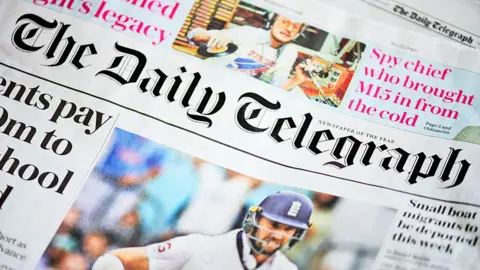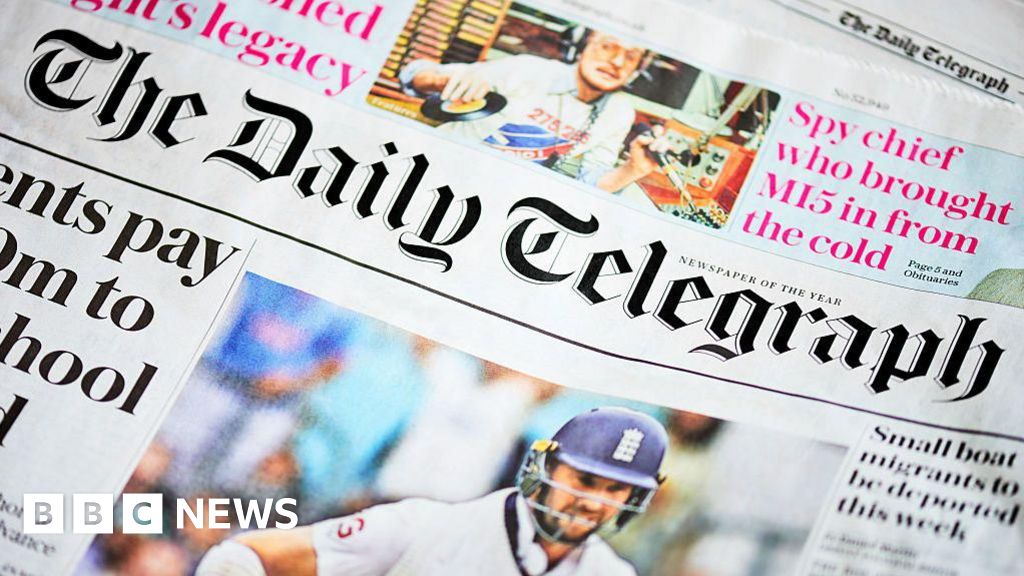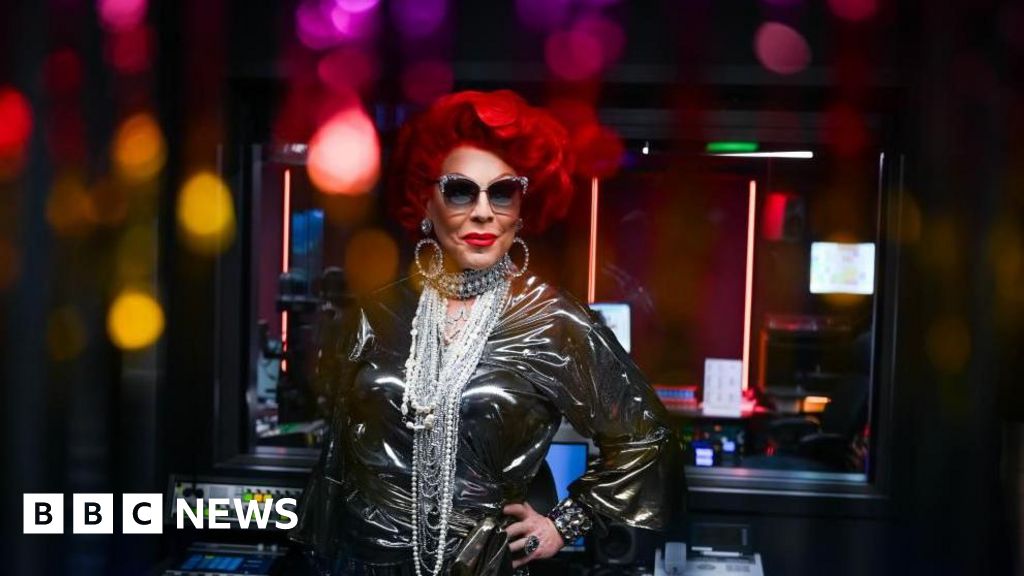Holly Wallis and
Patrick Jackson
 Getty Images
Getty ImagesThe publisher of the Daily Mail has agreed to buy the Daily and Sunday Telegraph for £500m.
The Daily Mail and General Trust (DMGT) said it had entered a period of discussion with RedBird IMI, which is a joint venture between the United Arab Emirates and the US private equity firm RedBird Capital Partners.
RedBird Capital’s own bid for control of the Telegraph collapsed last week.
The deal needs to be signed off by Culture Secretary Lisa Nandy. A spokesperson said Nandy would “review any new buyer acquiring the Telegraph in line with the public interest and foreign state influence media mergers regimes”.
The Telegraph has been in limbo for over two years, when the RedBird IMI consortium paid off the debts of the Telegraph’s previous owners, the Barclay family, hoping to take eventual ownership of the newspapers.
Dame Caroline Dineage, chair of the House of Commons Culture, Media and Sport Committe, said she was “keen to see a resolution to the uncertainty that’s hampered the Telegraph for years”, while “not understating the need for media plurality”.
“This situation has been unsustainable for the business and unsettling for staff so I hope the government set out its position early next week,” she added.
“The Committee have largely stayed out of the discussion to date, because takeovers are quasi judicial in terms of the Government’s role.”
DMGT and RedBird IMI have said they expect the deal to be finalised quickly.
DMGT chairman Lord Rothermere said he had “long admired the Daily Telegraph” and the deal would give “much-needed certainty and confidence” to its employees.
He said: “The Daily Telegraph is Britain’s largest and best quality broadsheet newspaper and I have grown up respecting it. It has a remarkable history and has played a vital role in shaping Britain’s national debate over many decades.”
He added: “Chris Evans is an excellent editor and we intend to give him the resources to invest in the newsroom. Under our ownership, the Daily Telegraph will become a global brand, just as the Daily Mail has.”
The purchase would see the Telegraph become part of DMGT’s portfolio of media organisations, which includes the i Paper, Metro and New Scientist, along with the Daily Mail and Mail on Sunday papers.
The group said the Telegraph would remain editorially independent from DMGT’s other titles.
It said its case for having the deal approved was “compelling” and would comply with UK regulations, as there would be no foreign state investment or capital in the funding structure.
A spokesman for RedBird IMI said: “DMGT and RedBird IMI have worked swiftly to reach the agreement announced today, which will shortly be submitted to the secretary of state.”
Elsewhere, Chris Fox, Liberal Democrat Lords’ spokesperson for business, said: “A move towards a potential deal to end the uncertainty that has plagued the Telegraph’s future should certainly be considered.
“But, of course as Liberals, we are sceptical about concentrating so much agenda-setting power in the hands of so few.”
He urged the competitions’ regulator to “rigorously examine” the terms of the agreement to “ensure we don’t get an even more unbalanced media market for consumers and competitors”.
RedBird Capital pulled out of a deal to buy the Telegraph last week.
It had a previous attempt to buy the group rebuffed by politicians as it was majority-funded by Abu Dhabi’s IMI group – which is owned in turn by the Abu Dhabi royal family.
A law change meant that foreign sovereign wealth funds could take a maximum stake of 15% in newspapers or periodicals.
Its more recent bid complied with that rule, but it was understood that the government intended to submit the deal to regulatory review.
Sources close to RedBird insisted that they were confident that the bid would have passed a government review process, but cited negative articles toward the bid from the current Telegraph newsroom as a factor in shelving their interest.
RedBird founder Gerry Cardinale had planned to expand the Telegraph’s reach and subscriber base in the US, believing there to be a gap in the market.
Among other investments, RedBird owns the Italian football team AC Milan.




